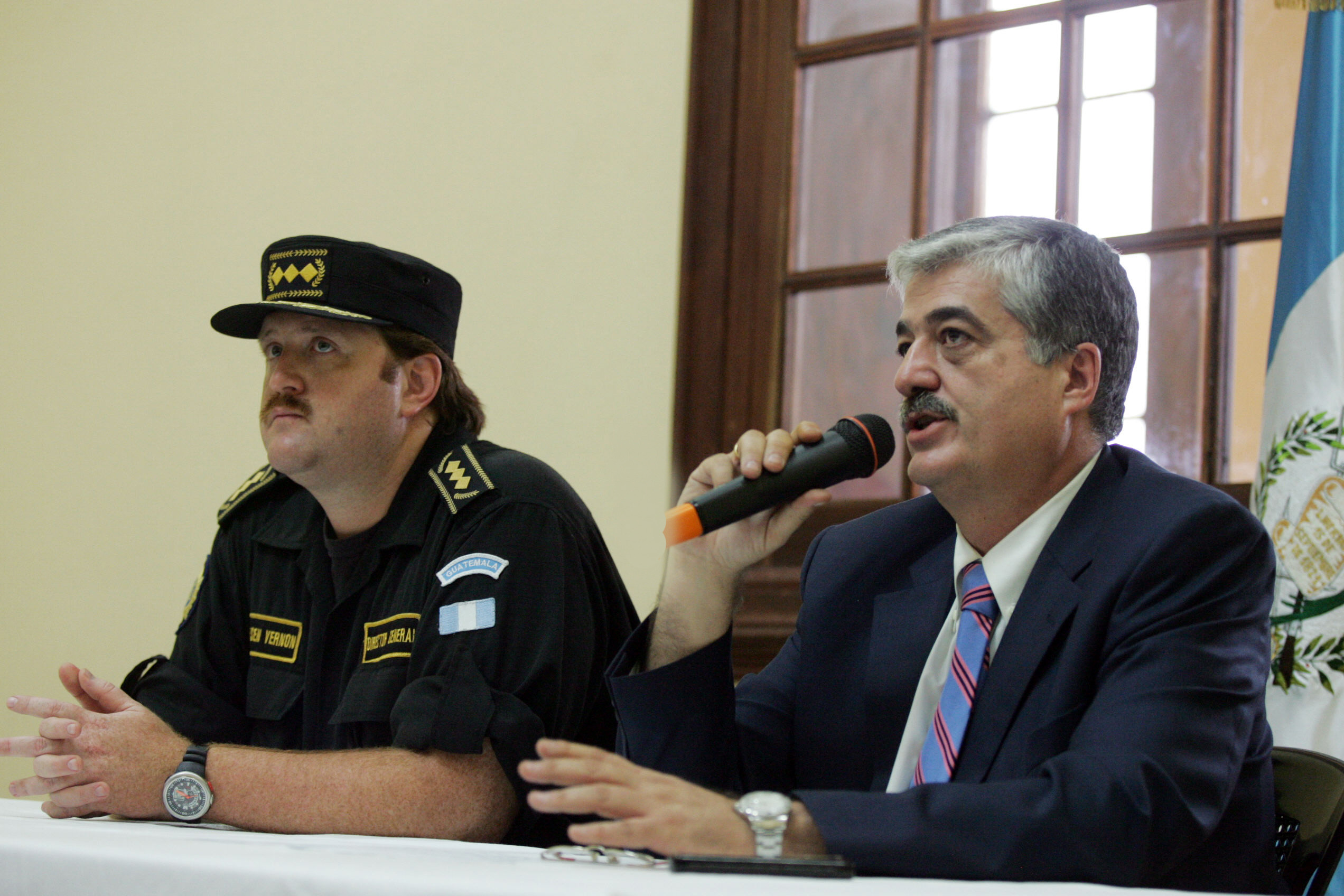
Life sentence for Guatemalan police chief Sperisen

Erwin Sperisen, the former head of Guatemala’s national police, has been found guilty by a Geneva court of involvement in the murder of six Guatemalan prisoners and killing another between 2005 and 2006.
Sperisen, who has dual Swiss-Guatemalan citizenship, was on Friday sentenced to life for his crimes. According to the judges, because of his rank, Sperisen played a decisive role in the killings. In one case, he carried out one of the executions himself.
Sperisen’s lawyers had been asking for his acquittal and have said they will appeal the decision. The convict, who was born into a wealthy and powerful Guatemalan family, had claimed he was not guilty and that he had never ordered executions.
The Swiss court, however, found him guilty of ordering the execution of three prisoners who attempted to escape from a prison centre in November and December 2005. Sperisen allegedly asked his subordinates to make it seem as though ten detainees had clashed with police in three separate incidents before they were shot.
Sperisen was also allegedly involved in 2006 when seven detainees were executed during the Guatemalan security forces’ attempts to regain control of the Pavon prison, which had been taken over by inmates. The defence has claimed that the prisoners were killed during clashes with the police, but a United Nations commission found they were planned extrajudicial killings.
The former Guatemalan police chief was forced to resign in 2007. The assassination of three Salvadorian members of parliament and their driver had been followed by the murder in prison of the four police officers arrested for the crime by security officers under Sperisen’s authority.
Swiss link
Sperisen was arrested on August 31, 2012, while he was living in Geneva. He moved to Switzerland after his resignation and lived in the home of his father – a representative at the World Trade Organization – much of the time.
He was questioned 11 times by investigators, always denying any involvement in the deaths of the prisoners. Fourteen witnesses made the trip to Geneva from France, Guatemala and Spain to give evidence, while further elements were collected from abroad.
Because Switzerland does not extradite its citizens, Sperisen is on trial in Geneva. He inherited his citizenship from his father, whose family is originally from Solothurn. Swiss law imposes legal proceedings for crimes committed abroad by Swiss nationals when the person lives in Switzerland.
Swiss jurisdiction
Sperisen’s trial marks the first time that a Swiss citizen was judged for severe crimes committed in a country that is confronted with quasi systematic impunity. The case is special because Swiss judges will have to try to resolve paradigms that do not really concern Switzerland, according to a lawyer of the defence.
At the same time, the trial is quite “ordinary” because of the double-nationality of the accused, said Sévane Garibian, a human rights and international penal law expert. She explained the fact that the International Commission against Impunity in Guatemala had provided Swiss prosecutors with evidence from its investigations had made the trial possible in Switzerland.
Garibian, a researcher at the University of Geneva, pointed out that Switzerland is already involved in the process of coming to terms with the past in Guatemala because Switzerland provides its support for the transitional judicial system through a government programme.
“From an internal point of view the trial in Geneva can therefore be seen as materialisation of the Swiss penal jurisdiction because of the accused’s nationality,” she said. “And from an international point of view as a contribution to the fight against impunity for gross human rights violations.”
Questions raised
The prosecutor had demanded a prison sentence of more than ten years. However, there have been questions raised about the plaintiff, the mother of one of the murdered prisoners, who was not in Geneva for the case.
According to the Illustré magazine, she was not aware of the trial taking place and did not realise there were two lawyers acting in her name. She claims she did not understand the significance of the documents she signed.
Still, about 20 witnesses appeared at the trial, including a former French detainee who claims to have seen Sperisen kill a prisoner.

In compliance with the JTI standards
More: SWI swissinfo.ch certified by the Journalism Trust Initiative

























You can find an overview of ongoing debates with our journalists here . Please join us!
If you want to start a conversation about a topic raised in this article or want to report factual errors, email us at english@swissinfo.ch.